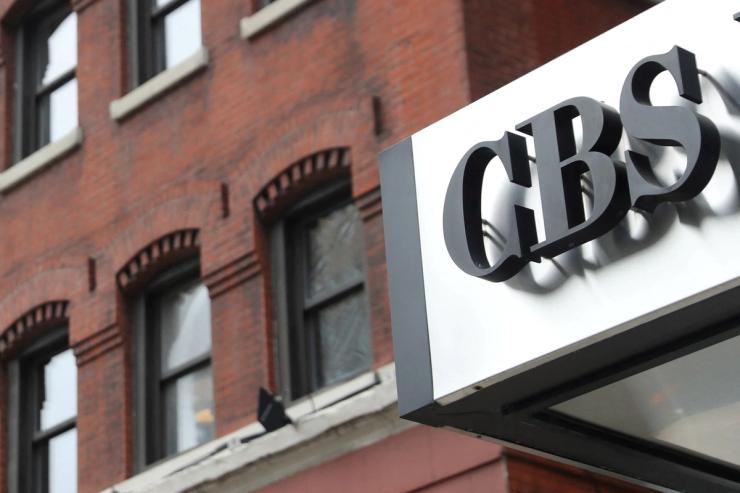The News
Bari Weiss’ television prospects once appeared to be fairly bleak.
Following her departure from the New York Times in 2020, Weiss sought out a market for her television skills without success. She once angled for a job as a panelist on The View, but reportedly did not perform well with audiences. Over the years, she privately told people around her that comedian Bill Maher wanted to develop an HBO show for her, but despite some appearances on the program and vocal on-air support from its host, the program never materialized.
Less than five years later, it appears she wasn’t dreaming big enough. Weiss, the founder of an independent media site worth millions and the editor-in-chief of CBS News, arrived last week in the Washington bureau trailed by the private security that now protects high-profile media figures. She may soon be on camera herself.
But getting there may have been the easy part.
In this article:
Know More
Weiss now faces three major challenges. The first is leading the network through a big-picture structural change that has foiled a generation of TV news executives. (Weiss is effectively parallel to President Tom Cibrowski.)
She’s tasked with revitalizing a network that has undergone numerous leadership changes and reshuffling over the last decade. During that time, CBS’ viewership has aged and declined, and its digital operation has lagged behind nimbler competitors, even as other television networks have found some limited success in the worlds of podcasting and digital video. CBS News may still have several of the top news programs on broadcast television, including 60 Minutes and CBS Sunday Morning. But the audiences for those shows is in terminal decline, and it will be up to Weiss to figure out how to transform them to successful digital properties or create new ones in their stead.
The second challenge is building trust with her new staff.
During her first week on the job, Weiss embarked on a listening tour of the network and met with top staff and producers, many of whom left the meetings with cautious optimism about the network’s future. Some top producers and talent were impressed by Weiss’ desire to immediately juice the network’s political bookings, as well as her ability to actually nab a few notable guests, like former secretaries of state Hillary Clinton and Condoleezza Rice. (She also discovered the fluid nature of TV bookings when two other former secretaries of state, Mike Pompeo and Antony Blinken, dropped out of a planned panel.)
That hasn’t necessarily translated to rank-and-file staff, who have viewed the moves with greater suspicion. On Friday, as Semafor first reported, the two unions representing CBS News employees told members not to reply to an email Weiss sent employees asking for information about their jobs and how they saw the network.
The third is trust with audiences.
Weiss spent most of her career on the opinion side of big American newspapers. The Free Press, which Paramount bought for about $150 million, paints itself as a voice of the center but draws its energy from the bitter US culture wars.
On the eve of Trump’s inauguration, the publication threw a raucous party at the Riggs hotel in Washington. Weiss mingled with then-CEO of X Linda Yaccarino, GOP Sen. Ted Cruz, and Peter Thiel, and brushed shoulders with MAGA media personalities like Dave Rubin and the fighter Conor McGregor.
What will Weiss do to signal to the audience that CBS remains firmly committed to nonpartisan news — and willing to take on a president whose appointees regulate her parent company, and who is himself an ally of Larry Ellison, the father of Paramount CEO David Ellison?
For the moment, CBS News is insisting that the company it just absorbed will remain a separate entity, beyond Weiss’ dual role as CBS editor-in-chief and head of The Free Press. But institutional gravity is already starting to pull the two organizations together.
Staff at The Free Press are eager to start working with CBS News; reporter Olivia Reingold appeared on CBS News Friday morning to discuss her report that anonymous NYPD officers had been threatening to quit the force if Zohran Mamdani is elected New York City mayor. CBS and Paramount staff, including CBS political director Fin Gómez, were also in attendance at a Free Press event in DC where Weiss interviewed defense tech founder Palmer Luckey.
Max’s view
Weiss made two good bets when she founded The Free Press. First, she saw an audience for educated, well-off center-left and center-right readers who were uncomfortable with the left in academia, the media, and the Democratic Party.
The Free Press launched with a focus on the US culture wars. But in the wake of the October 7 attacks in Israel, Weiss reoriented the publication around the war in Gaza. Again, she bet that there was an audience of readers who felt that the media and the Democratic Party were too sympathetic to the Palestinians, and positioned The Free Press against critics of Israel.
The Free Press, however, barely covers some of the domestic stories that tend to drive television news and mass interest: In particular, it covers the US economy, inflation, and tariffs relatively rarely compared to hotter topics like campus speech fights and continuing arguments over public health and education.
The combination of anti-woke commentary and reporting and critical coverage of opponents of Israel have at times synthesized into a kind of center-right intersectionality, in which the New York mayor’s race should really be seen as a race about Israel and trans rights and what gets taught on college campuses. That blend has endeared Weiss to readers and power players in Los Angeles, where her friendship with A-List celebrities and media moguls has been well documented.
But where can the publication grow from here, if “wokeness” has taken a backseat and the major story of illiberalism in America is now the story of the ascendant political right’s attempts to crush the left using the power of the federal government? If the ceasefire between Hamas and Israel holds, where will The Free Press focus the majority of its editorial attention? And will Weiss, now deep in the weeds of broadcast television distribution, be fully present to steer it?
Notable
- In May, Semafor’s media team took a long look at the state of “anti-woke” media, and how The Free Press and its contemporaries “are reckoning with a president who has embraced their positions on many of their favored issues.”


